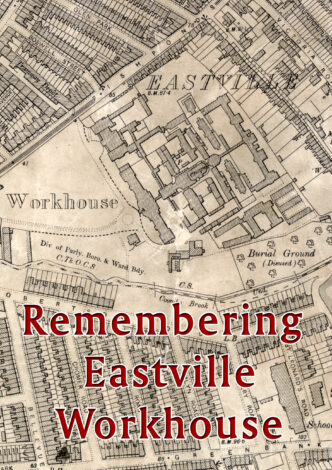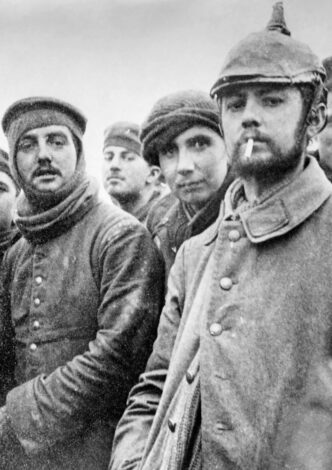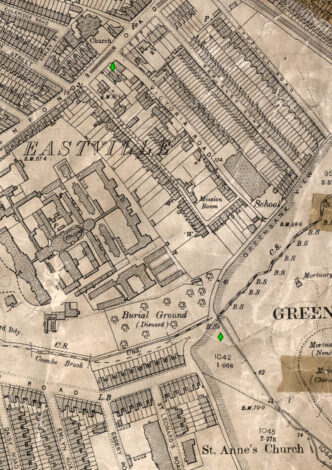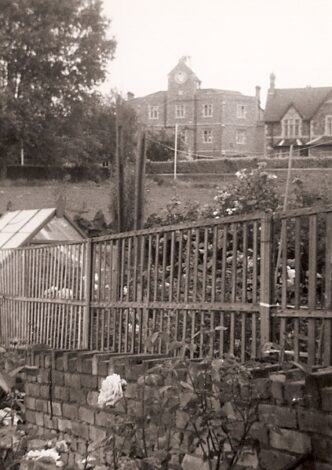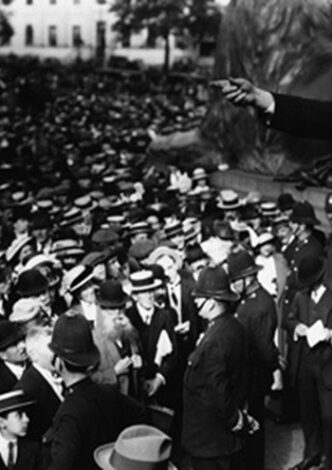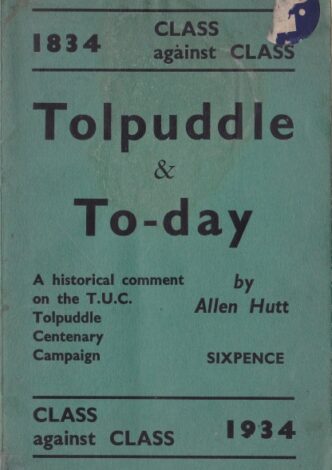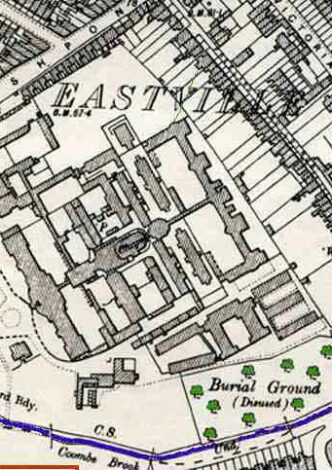The files listed on this page contain data by decade of the burials at Rosemary Green (marked "Burial Ground (Disused)" on the map below). These are people who died in Eastville Workhouse and were buried in unmarked graves at the site. The files are for Version 2.0 published November 2015 by Bristol radical History. More files for subsequent decades will be added as the are compiled. As existing files are corrected, expanded and updated new version numbers will be issued. A Note On Dates It is […]
A British sergeant is shot dead almost at the outset, as he stands on the parapet. But this makes no difference. It must be an accident. The supreme craving of humanity, the irresistible, spontaneous impulse born of a common faith and a common fear, fully triumph. And so the grey and khaki figures surge towards each other as one man. The movement has started on the right. It spreads like contagion. Only we officers, the sentries and a few non-commissioned officers remain in our trench. The men […]
A woman before the courts in 1882 said that she preferred the gaol to Eastville workhouse as ‘in the latter she was three quarter starved and worked to death’ Before the end of the Second World War and the creation of the Welfare state and the National Health Service if you were poor and you got ill or you couldn’t find work there was only one choice for you or your family – the workhouse. The Poor law system that administered the work houses was deliberately designed to make the choice of the […]
Bristol Radical History group (BRHG) is making progress on the project to record and respect the paupers buried in unmarked ground behind the old Eastville workhouse (100 Fishponds Rd), now called Rosemary Green. A key marker of disrespect is burying people, seen as worthless in unmarked graves; their death and burial not worth marking. Despite the fact that Victorian Britain and its Empire was the ‘workshop of the world’ generating unprecedented wealth for the few, at its base was widespread […]
Opposition to WW1 in Bristol in August 1914 War enthusiasm? There is a perception in Britain that popular patriotic pressure drove politicians to declare war on Germany on August 4th 1914 and that the population somehow desired war. This so-called ‘war enthusiasm’ has been characterised in the popular memory as: "cheering crowds outside Buckingham Palace, long lines outside recruiting offices and of soldiers marching away singing 'Tipperary'" . These images have been recently promoted by TV […]
A few years ago Bristol Radical History Group published a pamphlet entitled Tolpuddle and Swing: The Flea and the Elephant which critiqued the centrality of the Tolpuddle Martyrs incident (1833-34) to Trade Union history whilst the massive uprising of rural wage-labourers which occurred a few years previously, known as the ‘Captain Swing riots’ (1830-31), had been pretty much ignored. The pamphlet essentially came about because of admirable efforts by Trade Unionists in Wiltshire and Hampshire […]
Eastville Workhouse, BRHG research project There is rightly scandal in the press at the 800 babies buried in unmarked graves in Galway. But this was not a unique occurrence. Bristol Radical History Group BRHG has established that 3,300 adults, children and babies were buried in unmarked graves in an old cemetery (now a piece of open ground) behind the Eastville Workhouse on Fishponds Road in Bristol. The workhouse death records from 1855 to 1895 establish these burials took place. Some human […]
Translation by Diarmuid Breatnach; original version published in Spanish in Rafael Narbona’s blog August 2013, also republished by kind permission in Rebel Breeze. On the morning of August 5th 1939 thirteen women were shot dead against the walls of the Eastern Madrid Cemetery. Nine were minors, because at that time the age of majority was not reached until twenty-one. Ranging in age from 18 to 29, all had been brought from the Sales women’s prison, a prison that was designed for 450 people and […]
